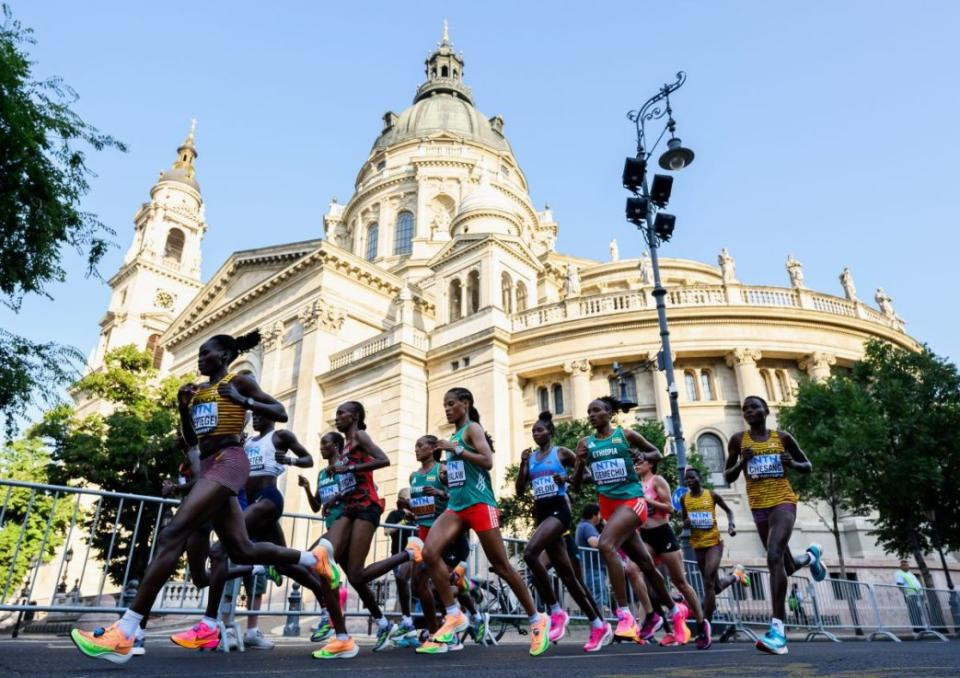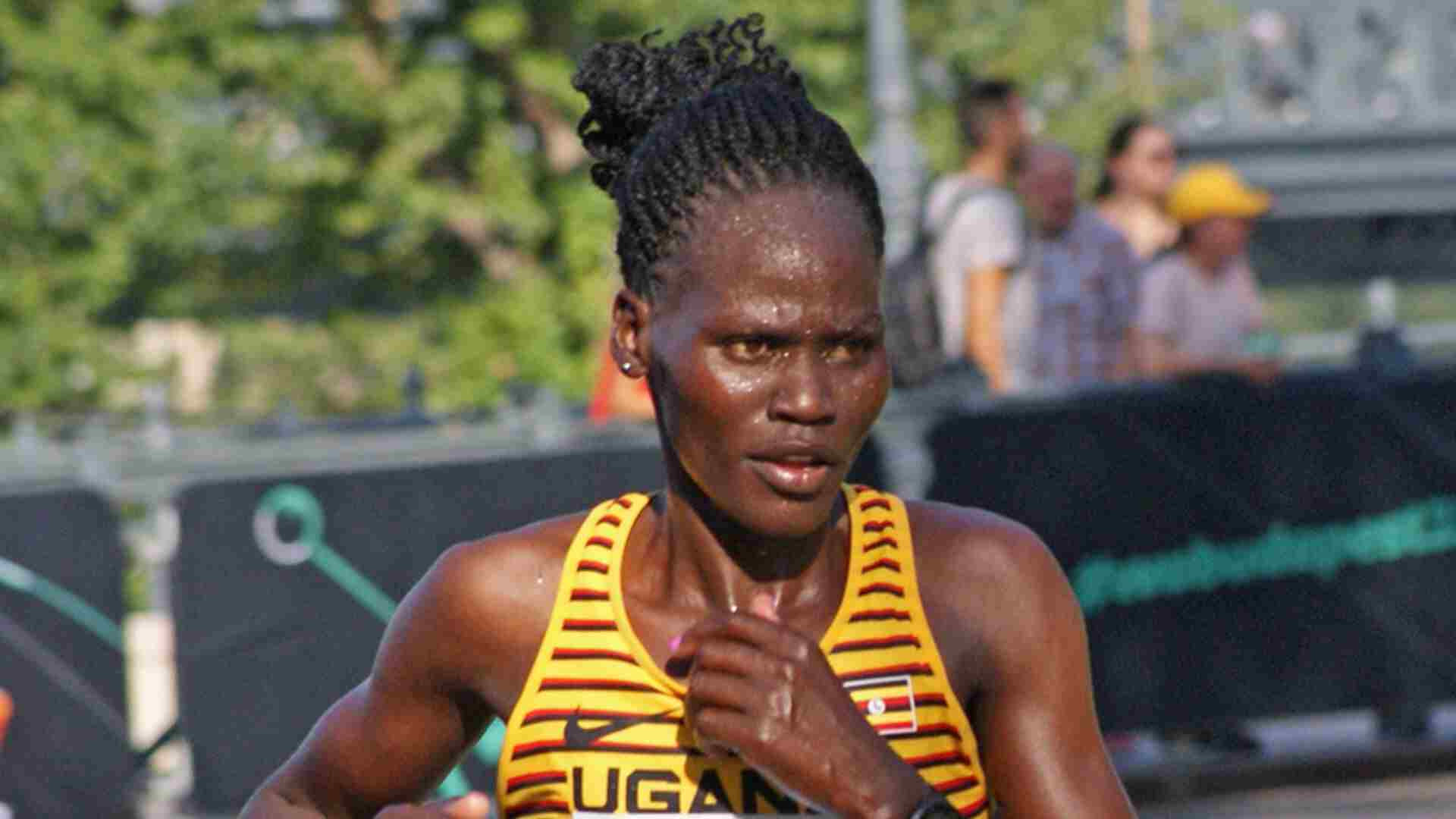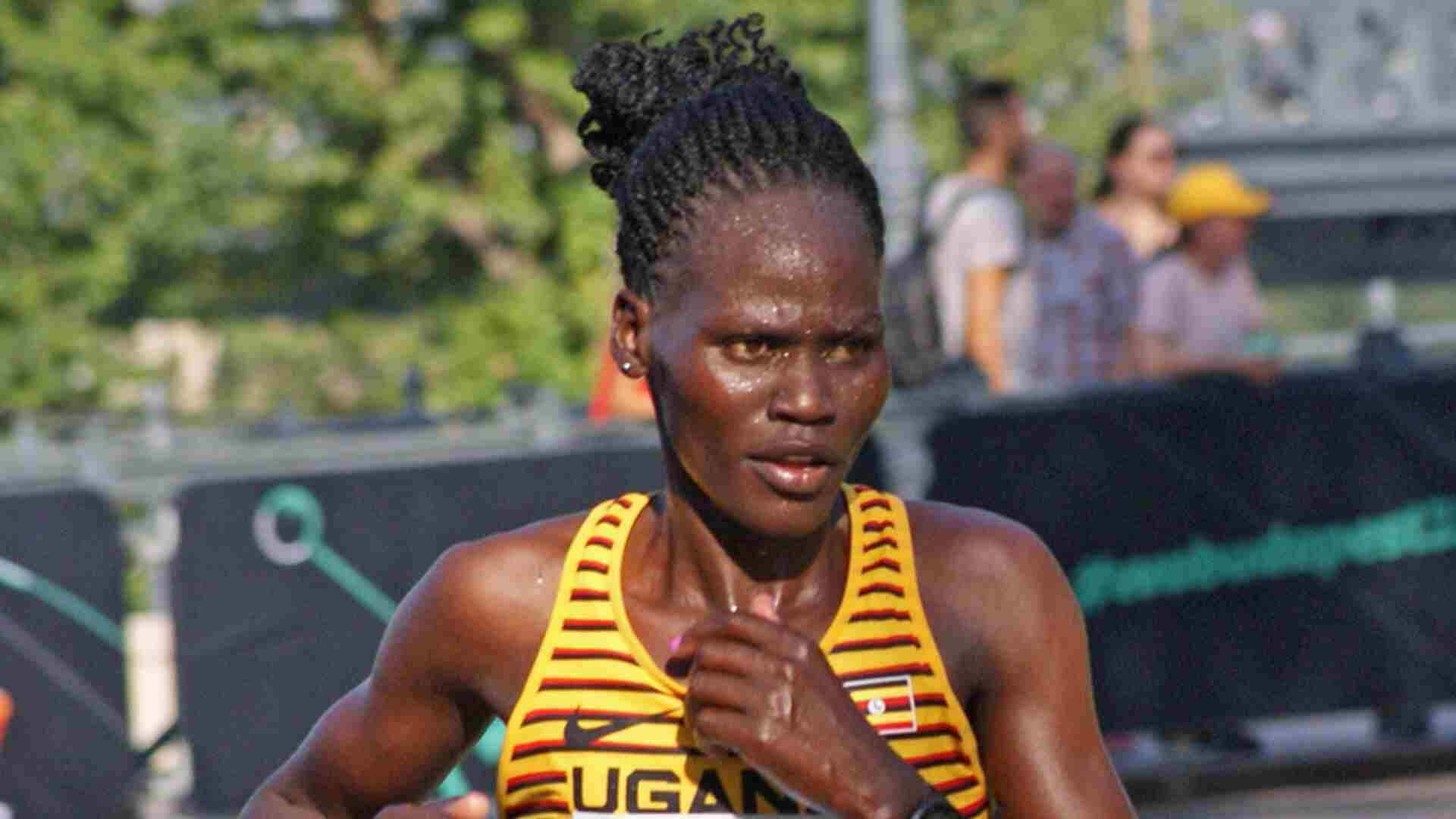The funeral service has begun for Ugandan Olympic marathon runner Rebecca Cheptegei, who was set ablaze by her former boyfriend and later died. The 33-year-old's killing, and its brutal nature, left her family distraught and shocked many others across the world. It underscored the high levels of violence against women in Kenya and the fact that several female athletes have been victims in recent years.
Dickson Ndiema attacked her with petrol just under a fortnight ago outside her home in north-west Kenya, close to where she trained. He attacked the mother-of-two after she returned from a service at a church, the God's Dwelling Ministry. The pastor there, Caroline Atieno, remembers a "wonderful... God-fearing person". After hearing about what had happened, she managed to speak to Cheptegei on the phone while she was in hospital.
Cheptegei will receive full military honours at the ceremony in Uganda, having been a member of the armed forces there. The funeral is being held in Bukwo, home to her family in Uganda and close to the Kenyan border. On Friday, family members, friends and activists against gender-based violence viewed her coffin at a funeral home in the Kenyan town of Eldoret, before it was driven away. Her mother, Agnes Cheptegei, covering her face in anguish, was wearing a souvenir bag that the athlete received at the recent Paris Olympics, where she came 44th in the marathon. She was dressed in a T-shirt which had the slogan "being a woman should not be a death sentence" printed on it.
The athlete first asked about her children, who were both fine, the pastor told the BBC's Africa Daily podcast. Then Cheptegei talked about her attacker: "You mean Dickson is not able to see all I have done for him? He could not remember even one or two things I have done for him and stop setting me on fire? Why has he done this to me?"
Cheptegei died in hospital four days after the attack. Doctors said she had suffered burns on more than 80% of her body which "led to multi-organ failure". Ndiema, who was also burned after some of the fuel splashed on his own body, died on Monday.
The Death of a Champion
The mother-of-two was the third female athlete to be killed in Kenya over the last three years. In each case, current or former romantic partners were named as the main suspects by police. In 2021, world-record holder Agnes Tirop was stabbed to death and six months later Damaris Mutua was strangled. The circumstances of Ms Cheptegei's death shocked the world, but her name may yet inspire future athletes, with the French capital planning to name a sports facility in her honour. "She dazzled us here in Paris. We saw her. Her beauty, her strength, her freedom," the city's mayor Anne Hidalgo told reporters. "Paris will not forget her."
Violence Against Female Athletes in Kenya
Attacks on women have become a major concern in Kenya. In 2022 at least 34% of women said they had experienced physical violence, according to a national survey. Some observers are saying that female athletes are becoming increasingly vulnerable. "[This is] because they go against traditional gender norms where the woman is just in the kitchen and just cooking and taking care of kids. But now female athletes are becoming more independent, financially independent," said Joan Chelimo, who co-founded Tirop’s Angels to help highlight the issue of violence against women. Chelimo is a board member for Tirop’s Angels, an organization formed by athletes following the 2021 killing of Kenyan distance runner Agnes Tirop, whose husband, Ibrahim Rotich, has been charged with her murder. Rotich has pleaded not guilty, according to Reuters, and the case is ongoing. Tirop’s Angels aims to combat gender-based violence in Africa and around the world. Among its objectives are empowering women and girls at risk of violence, expanding services available to survivors, intensifying efforts to turn policy pledges into reality, and engaging men and boys in prevention efforts. The organization also holds fundraising events – including marathons and half marathons – to promote awareness of gender-based violence and celebrate the lives of victims. On Friday, a day before Cheptegei’s funeral in eastern Uganda, Tirop’s Angels hosted a femicide walk in the Kenyan city of Eldoret.
A Call For Justice
The killing of Cheptegei has sparked outrage over the high levels of violence against women in Kenya, particularly in the athletics community. "I don’t know where the humanity is," says Chelimo. "I feel like something more has to be done. We need to come together as one voice, not only women but also men. Everybody in society and the community just needs to come together and see how we can end this."
Cheptegei’s death has left many questioning the safety of female athletes in Kenya. "We don't want this to happen to any other woman, whether an athlete or from the village, or a young girl," Rachel Kamweru, a spokesperson of the government's department for gender and affirmative action, told the BBC. Her mother, Agnes, remembered her as “a good child,” while her father, Joseph, blamed the Kenyan government and police for failing to prevent their daughter’s death, saying that the family had previously reported Ndiema for domestic violence offenses. Neither the Kenyan police nor Kenya’s Directorate of Criminal Investigations have responded to CNN’s request for comment. "She spoke up," says Chelimo, "she told people around her, she reported it to the police. Nothing was done. So, the cry from the family was: ‘We just want justice; we just want more enforcement from the government.’"
A Legacy of Strength and Resilience
The death of Rebecca Cheptegei is a tragic reminder of the violence that women face around the world. It is a call for action to protect women and girls and to create a world where they can live free from fear. Her death may have been a senseless act of violence, but her life was a testament to strength, determination, and resilience. She will be remembered for her accomplishments on the track and for her unwavering spirit. Her legacy will continue to inspire future generations of athletes and activists, reminding us that the fight for gender equality must continue.
Cheptegei's death is a tragedy, but her legacy will live on. Her story is a reminder that violence against women is a global issue that needs to be addressed. We need to work together to create a world where all women and girls can live free from fear and violence.



















